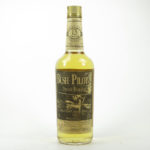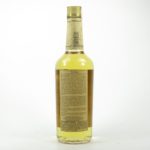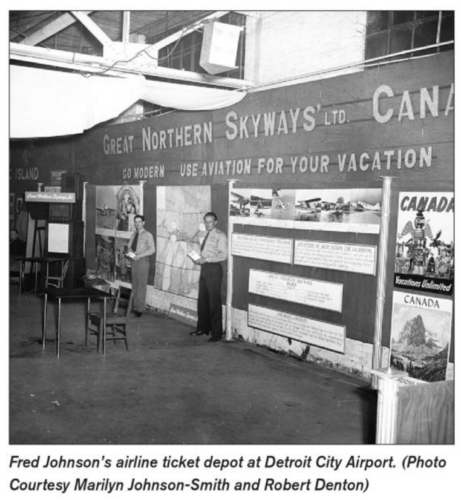
★★★Please take a minute to tell your Members of Congress
|
Monthly Archives: January 2012
When Google Attacks
The CEO of Mocality, an online database in Kenya, has written a detailed report on why he believes his company has caught Google engaging in predatory and fraudulent practices.
It starts with a simple sting operation.
We made some changes to the site:
For visitors from the 41.203.221.138 address, we changed the code to serve slightly different content 10% of the time.
Instead of the real business phone number, we served a number that fed through to our call centre team, where the incoming calls would also be recorded. Our team were briefed to act like the business owners for the calls.
We switched the new code on December 21st.
When we listened to the calls, we were beyond astonished.
Basically when their servers saw access to their database coming from Google in Mountain View they swapped in special phone number that went to the Mocality call center. A call then would come from someone trying to sell a Getting Kenyan Businesses Online (GKBO) website. GKBO was just launched by Google last September.
Mocality says they thought this would be a rogue employee case when they started the investigation but their fear has become far more serious.
I did not expect to find a human-powered, systematic, months-long, fraudulent (falsely claiming to be collaborating with us, and worse) attempt to undermine our business, being perpetrated from call centres on 2 continents.
Google’s response, on Google+, has been vague
We were mortified to learn that a team of people working on a Google project improperly used Mocality’s data and misrepresented our relationship with Mocality to encourage customers to create new websites. We’ve already unreservedly apologised to Mocality. We’re still investigating exactly how this happened, and as soon as we have all the facts, we’ll be taking the appropriate action with the people involved.
Mocality’s CEO has updated his complaint to acknowledge the apology. But he is still asking questions. This might be the toughest one for the giant company to investigate
Apparently, the calls were made by a 3rd party vendor. I can see how this was the case for the activity we saw in Kenya, but the Indian activity seemed to come from Google’s own network. I know (from friends who are Googlers) how preciously that network is guarded. How was a 3rd party given access to it?
It begs the old question of Google complaints against attacks said to originate in China. Although the breaches were blamed on software flaws and human failure, it also was hinted in private that Aurora attacks first were related to weak VPN access controls in remote offices passing through a flat network. Mocality may have pulled a thread that will unravel more serious issues with the Google perimeter…
Bush Pilot’s Private Reserve Whiskey
Bush Pilot’s was the best whiskey I ever tasted. It then suddenly and completely disappeared from stores in America around 1998.
I later found a bottle in 2000 on the menu at Skates on the Bay and I begged them, no pleaded, to sell the whole thing to me. They of course refused (claiming regulations) but I don’t think they realised at the time they may have been one of the last known places to have an accessible bottle.
Fortunately I don’t think anyone else realised either because I often went back and always found a bottle of Bush Pilot’s waiting for me. The day it finally was emptied I held a little farewell on the pier. Unfortunately they refused to sell me their empty bottle. It was the laws, again they said, that prevented it.
So then I was left to wonder how such an amazingly smooth 13-year-old corn whisky with hints of oak and vanilla could disappear. I called in friends and family in the search. Distributors, distillers, caterers, all came up empty-handed. One caterer swore he could find anything. But no Bush Pilot’s was found and I gave up hope.
Finally I have answers for Bush Pilot’s demise from CanadianWhiskey.org.
Someone at the St. Louis-based beer giant, Anheuser-Busch, took exception to the name “Bush Pilot’s,” claiming it was too easy to confuse with Busch beer. At first the charges seemed so ludicrous that Smith and Denton just forged ahead. But eventually, realizing that Anheuser-Busch was dead serious about forcing Bush Pilot’s off the market and had the money to do it, they acquiesced. With that decision, Bush Pilot’s soon disappeared from the shelves and a whisky that was a legend in its own time became the Canadian whisky aficionado’s Holy Grail.
What they mean is a big-box corporation was ready to spend a huge amount of money to prove that Americans are unable to distinguish a plant from an airplane.
The big-box probably would not have won the case (pun not intended) on merits but that didn’t matter since they could just threaten the small whiskey brand into financial oblivion from legal fees alone. Such a sad story, it begs the question whether Bushmills, a distillery traced to the 1600s, should force Anheuser-Busch to change its name?
Alas, now the world is without one of the most innovative and best whiskies ever sold. Another sad example of American regulation of food gone awry (pun not intended).
Actual story behind the name:
Marilyn Smith created Bush Pilot’s Private Reserve (BPPR) as a tribute to Fred Johnson, her adventurous industrialist father who started an airline for trips into the Canadian bush. Johnson was a Danish immigrant to America in the late 1800s who worked his way up from nothing to holding numerous patents and running a sizable empire of manufacturing tech firms. His fortunes boomed from the industry demands of WWII, creating Progressive Welder and then Detroit’s “secret concept car builder Creative Industries“.
Just after WWII ended Johnson started a Great Northern Skyways as a hobby (See Creative Industries of Detroit: The Untold Story of Detroit’s Secret Concept Car Builder by Leon Dixon).
It flew from Detroit to remote resorts Johnson built near Ontario’s Blind River for hunting and fishing. Smith recalled her father telling stories of backwoods campfire drinking out of plain bottles of whisky the pilots would bring with them, which became the inspiration for re-creating a whiskey in his honor. A CBC interview from 1963 provides some first-person bush pilot perspective on what life was like.
No radio, no weather reports, and maps were sketchy…just topographical features.
Bob Denton, Smith’s partner, ran an independent spirits company in Michigan and in 1982 he was purchasing bulk Canadian blended whisky when he discovered a cache of well-aged corn whisky at Potter’s distillery in Kelowna, British Columbia. The distiller had produced it to sell to an old Canadian blend yet Denton convinced them he should buy it instead. Denton then bottled it unblended and single batch for Smith’s tribute to her father. In 1994 it was marketed as BPPR by Milton Samuels Advertising, becoming one of the rare whiskeys straight out-of-the-barrel to be bottled at barrel strength.
Today in History: 1945 Warsaw Liberation
On this day in 1945 the city was liberated by the Allied forces but found completely devastated. Over 1.3 million people lived in Warsaw, Poland at the start of war with Germany in September 1939; at least 350,000 were Jewish.
When Soviet troops resumed their offensive on January 17, 1945, they liberated a devastated Warsaw. According to Polish data, only about 174,000 people were left in the city, less than six per cent of the prewar population. Approximately 11,500 of the survivors were Jews.
Warsaw Rising Museum “City of Ruins” Trailer (MiastoRuin.pl):
Also on this day, three years earlier in 1942, the Nazis began the forced deportations from ghettos to the Chelmno extermination camp to carry out mass killings of their “Final Solution”, as described by an escapee with details and reported to London by June 1942.



